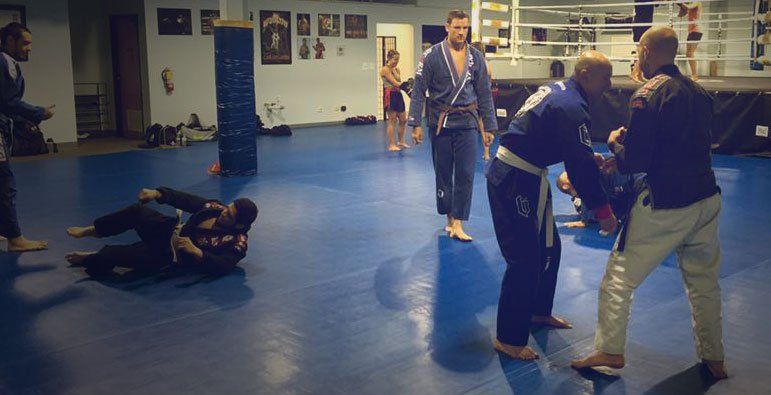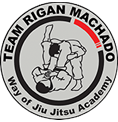Official Affiliate
SELF DEFENSE
PROGRAMS - SELF DEFENSE
SELF DEFENSE CLASSES IN COLORADO
Self Defense
Self Defense
Best self defense program in Denver Colorado
Best self defense program in Denver Colorado
How Competing in BJJ Is Actually Great for Self Defense Awareness
As a boy growing up in Japan, I was raised with a very traditional martial art called kendo. Kendo means way of the sword and although a modern sport, it has roots in samurai culture. Since then, my path in martial arts has brought me to America a beautiful melting pot of ideas and influences. In 2002 I choose Brazilian jiu jitsu as my path. Recently, there is much debate on competition vs self defense in BJJ. I would like to offer an interesting look at Japanese history to illustrate how the two approaches are compatible with the correct mindset. I was influenced tremendously by the way of the samurai who cherished living in the moment with combat moral principles.
Two months ago, I was in Israel to offer a BJJ seminar and to absorb some aspects of legitimate self-defense. I found in Israel a good balance between the reality of self defense and martial arts as a sport. Living in a country that is not at war, you can only imagine how daily life is affected by warfare, where their standard greeting is “shalom” a desire for peace.
If we look at the history of Japan, in times of turbulence and war, very little was accomplished in terms of advancing one’s skill. They typically didn’t have time to “train” as they were in a life or death circumstance. The sole concern is typically survival and not artistry or self-mastery. During times of peace, much advancement was made technically and on the level of human development and self-awareness.
One particularly violent period of time in Japan was from 1467-1603 a.d. A small number of legendary samurai arose from this period of civil war and social turmoil that propelled unsurpassed peace and influenced modern Japanese martial arts (Kendo, Karate-do, Judo)
tremendously to this day. One man in particular was the master of shadow style swordsmanship “Seki” Yagyu 1529-1606. In his later years, his mastery of such a smooth style of swordsmanship helped initiate an era of peace that lasted until 1868.
“Seki” is credited with popularizing the bamboo practice sword used in Kendo. At that time, this “training device” scorched much debate as guard pulling may do for self-defense proponents. Many samurai, thought it dishonorable to accept a challenge with a bamboo sword; as it was more like a game, less likely to result in death. Likewise, pulling the guard allows a pathway to a higher development on the ground vs navigating through take downs like in a practice that is devoted entirely to take downs. However, once the samurai realized how to use the bamboo sword as a training tool, higher learning and advancement in technique evolved that transferred onto the battlefield. Although the fighting system became more refined and had to adjust in the new generation much emphasis was on the mind and “keeping the sword sharp”.
It was Seki’s son, “Mune” who demonstrated bare handed defense against a live sword for the soon to be shogun Tokugawa. Tokugawa was so impressed by Mune’s demonstration because it represented a new way for the upcoming peaceful era. It signified not killing the enemy but the concept of zen mind’s influence on the sword. The idea of life-giving sword became a tool for how to live and the development of self-awareness.
Nowadays martial arts will have a different purpose for each individual.
It could be sports or fitness for using one’s energy in a more productive way. It could be for self defense purposes, for military, law enforcement, or street defense. Competition represents only a small fraction of the possibilities in a real confrontation with no rules but with the right mind-set; it can keep your sword sharp. Even when we “train” self-defense, it is in a test-tube environment; the attackers aren’t trying to kill the defenders and the circumstances are known. In a real scenario, we don’t know when/where and the attacker may do anything in their power to get what they want. In these situations, the mind must be sharp and be in the moment noticing the smallest
detail but not stopped for a moment.
It was an eye opening experience for my martial arts education to visit a country where combat is an everyday reality. Growing up in Japan, I appreciate being surrounded by the history of great samurai like the Yagyu who influenced martial arts indirectly worldwide. In speaking with Rigan Machado, he told me Rolls Gracie’s idea that sports competition develops self-awareness. In competition, we can learn to perform under stress in a safe environment. This tool can be useful for self-defense situations that are less predictable and in the unpredictability of life.
Nobuo Yagai - Bio:
Nobuo Yagai - Bio:
As a young boy in Japan, Nobuo Yagai was raised in the traditional art of kendo. Heavily influenced by the way of the samurai, his path in martial arts has taken him around the world and in 2002 the life of BJJ. Since then, he has forged life long friendships on the world stage of competition with some of the best of the best. He currently operates Way of Jiu Jitsu in Denver, Colorado and is writing a unique book on BJJ. Through the famous stories of samurai, origins of BJJ, and his own martial arts journey, Rigan Machado’s only Japanese black belt, Nobuo Yagai will challenge you to take your BJJ off the mat and infuse ancient wisdom into your own practice. Way of Jiu Jitsu is more than just a book for martial artists, but for anyone who dares to make more than a hobby out of life.
Credit: www.bjjee.com
PROGRAMS
CONTACT US
A1: 7808 Cherry Creek South Dr. 205 Denver, CO 80231
A2: 9565 Montview blvd
Aurora, Co 80010







